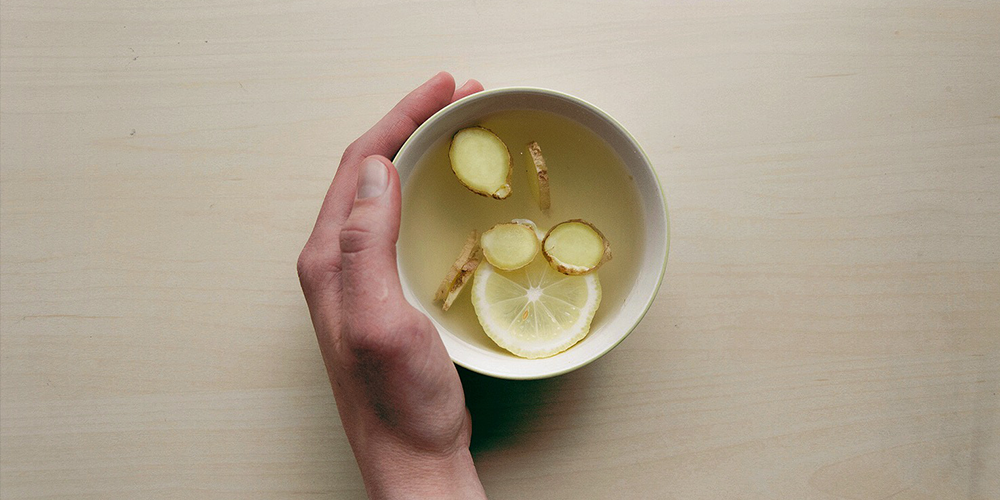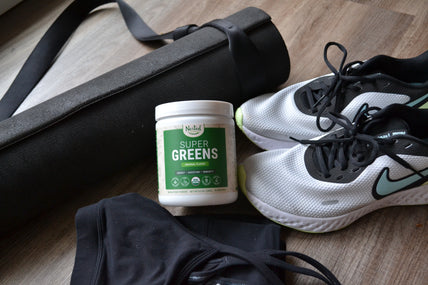6 Anti-Inflammatory Foods For Natural Pain Relief

Suffer from aches, pains, and stiff joints? These foods may be just what you need to banish your pain!
Inflammation is your body’s natural response to injury, infection, irritation, and stress. Physical characteristics include heat, swelling, pain, redness, and sometimes stiffness or loss of function.
A healthy immune response should flare up and die down again a short time later, once the inflammation resolves. It becomes an issue when the response gets out of hand and becomes chronic. Chronic inflammation may even initialize common chronic illnesses such as obesity, diabetes, arthritis, pancreatitis, cardiovascular, gastrointestinal, and neurodegenerative diseases.
Inflammation is largely caused by what we ingest. It’s important to note that food has the potential to trigger or prevent inflammatory responses in the body.
The good news is that you can control the level of inflammation in your body by changing the way you eat. Foods, herbs, spices, and supplements may provide ways to reduce, or even eliminate, chronic pain and inflammation in a holistic way.
Ginger
Ginger has been cultivated since ancient times as a medicinal plant with numerous therapeutic benefits. While typically used to alleviate nausea and aid digestion, ginger can calm inflammation and alleviate pain. The compounds in ginger, gingerols, function as a COX-2 inhibitor, the same way common rheumatoid and psoriatic arthritis medications work(1)! Ginger may be taken as a supplement or eaten fresh, dried, or pickled.

Turmeric
Turmeric is another herbaceous perennial plant in the Ginger family. For thousands of years it’s been used in Ayurvedic and Chinese medicine to prevent and treat muscle aches, cramps, arthritis pain, digestive and liver problems, skin diseases, and wounds. The active ingredient, curcumin, is a powerful antioxidant that has disinfecting properties.
Curcumin has also been found to block inflammatory pathways, and thus prevents proteins from triggering pain and swelling. Studies have found that turmeric plays a key role in the prevention and treatment of chronic inflammatory diseases. Notably, regular use of turmeric has shown to decrease swelling and stiffness in arthritis sufferers (2)(3).
If you don't incorporate Turmeric into your diet through cooking, there is always the option of supplementing Turmeric. Each serving of Nested Naturals Turmeric Curcumin includes 1000 mg of pure turmeric root extract with 95% curcuminoids.
Grinding up the root into a powder doesn’t yield very much of the active ingredient, but it’s an easy and cheap process. That’s why so many herbal supplements use powder forms. We buck the trend and use an extraction process that allows us to guarantee that you are getting a concentration of the good stuff. Because you’re looking for more than an herbal placebo, right?
Taken on its own, turmeric isn’t very bioavailable.6 Just like peanut butter works better with jelly and Batman works better with Robin, turmeric works better with black pepper. Some sources note that black pepper may boost the bioavailability of turmeric by 2,000%. We include 10mg of black pepper fruit extract in Nested Naturals Turmeric Curcumin to give your body full benefit.
Omega-3 Fatty Fish
Oily fish such as mackerel, salmon, sardines, and herring contain the all-important omega-3 fats known as EPA (eicosapentaenoic acid) and DHA (docosahexaenoic acid). Omega-3’s are some of the most potent anti-inflammatory compounds (4)! The recommended serving is two 2-4 ounce pieces of fish per week. Using fish oil as a dietary supplement has been shown to reduce inflammation as well, especially in autoimmune diseases, such as rheumatoid arthritis.

Avocado
The anti-inflammatory power of the avocado seems to lie within its carotenoid diversity. Carotenoids are compounds responsible for their vibrant colors of fruits and veggies. Once ingested, the body converts carotenoids into beneficial antioxidants and vitamins!
The avocado has the distinction of being the fruit with the highest fat content. Although it sounds unhealthy, these beneficial monounsaturated oils are loaded with antioxidants and help lower the risk of diseases, such as arthritis. Phyosterols and polyhydroxylated fatty alcohols (PFAs) provide anti-inflammatory benefits and help support the immune system in general.
Dark Leafy Greens
The darker the color, the richer the density of antioxidants, and dark green leaves are a prime example! Spinach, kale, Swiss chard, and bok choy are but a few of the delicious leaves packed with antioxidant boosting phytonutrients. Greens are packed with a diverse source of antioxidants, which protect the body from oxidative damage that occurs during inflammation. Specifically, antioxidants found in kale, kaempferol, and quercetin, are responsible for anti-inflammatory benefits in diseases such as diabetes, arthritis, and heart diseases.

Chia Seeds
Chia seeds are loaded with important omega-3 fatty acids which are converted to prostagladins which have pain-relieving and anti-inflammatory effects. One serving (approximately 3 tbsp) of chia seeds provides a healthy balance of omega-3 and omega-6 fatty acids that help regulate cholesterol levels. The mucilaginous (gumlike) fiber in the sprouted seeds promotes bowel regularity and helps stabilize blood sugar levels, ultimately enhancing immune function.
Aside from incorporating anti-inflammatory foods into your diet, you’ll also want to avoid the following inflammation triggers:
Refined Carbohydrates (grains, sugars):

The refining process removes vitamins, minerals, and dietary fiber. Refined carbohydrates have a high glycemic index and cause blood sugar to spike. Insulin resistance is a primary driver of chronic inflammation, so limit (or eliminate) adulterated white bread, pasta, flour, rice, corn syrup, high fructose corn syrup, maltose, sucrose, and dextrose.
Foods cooked at high temperatures:
Especially if cooked with vegetable oil (such as peanut, corn, and soy oil).



